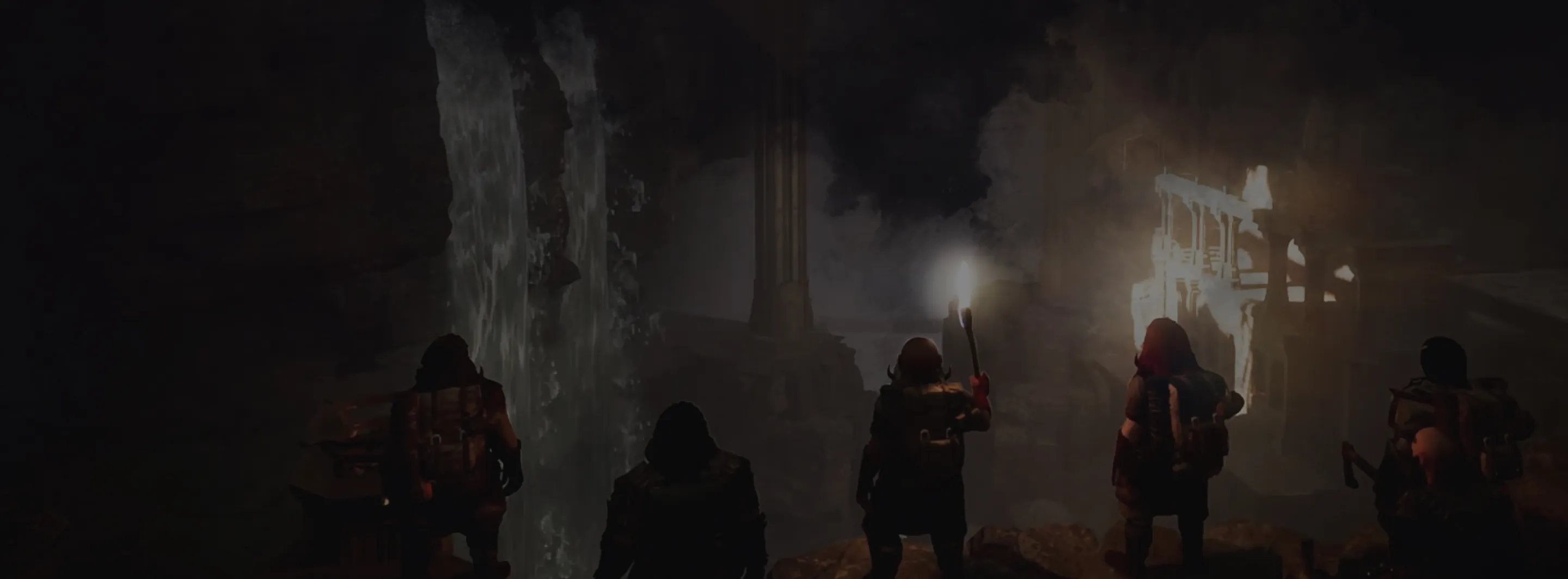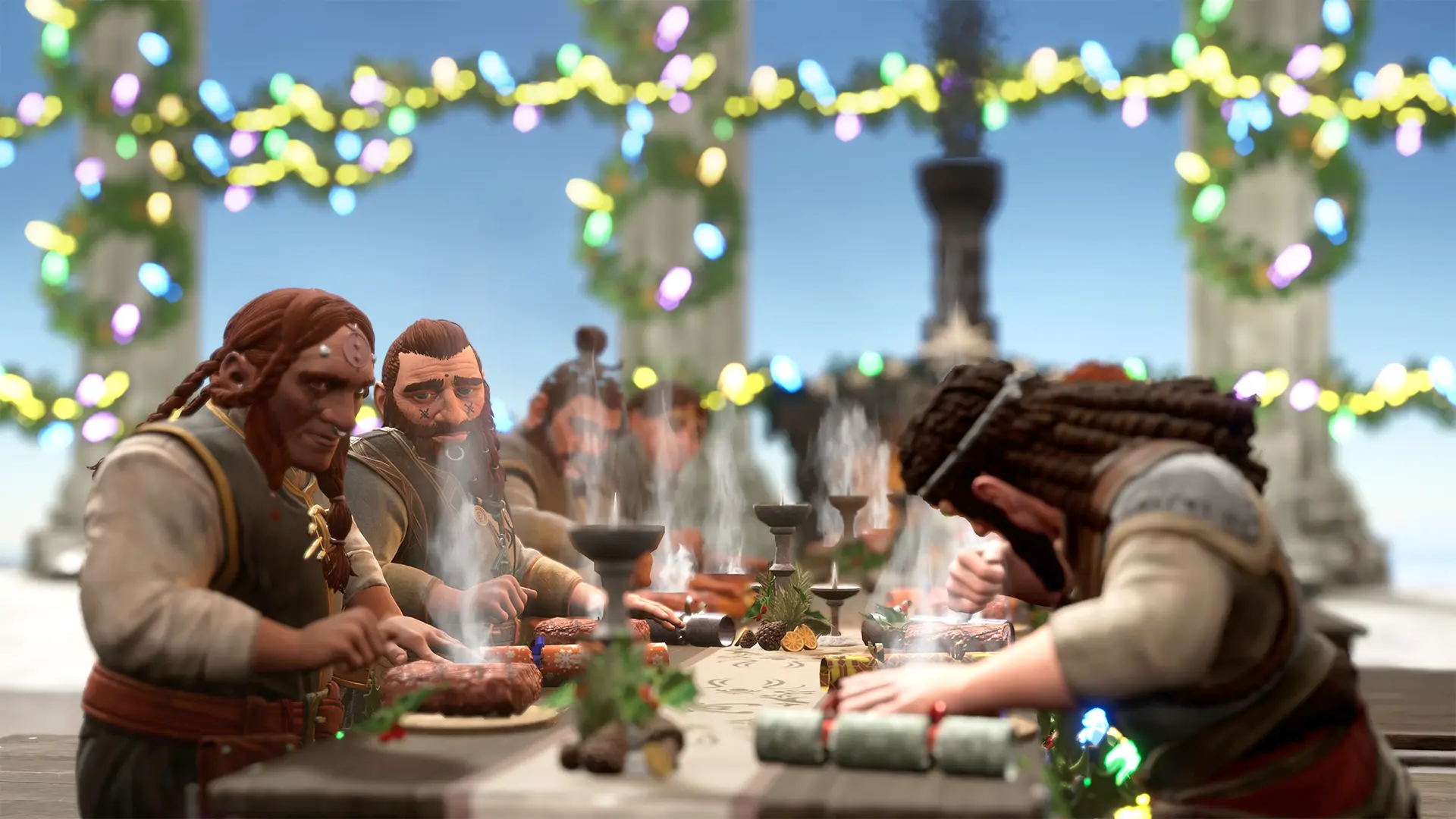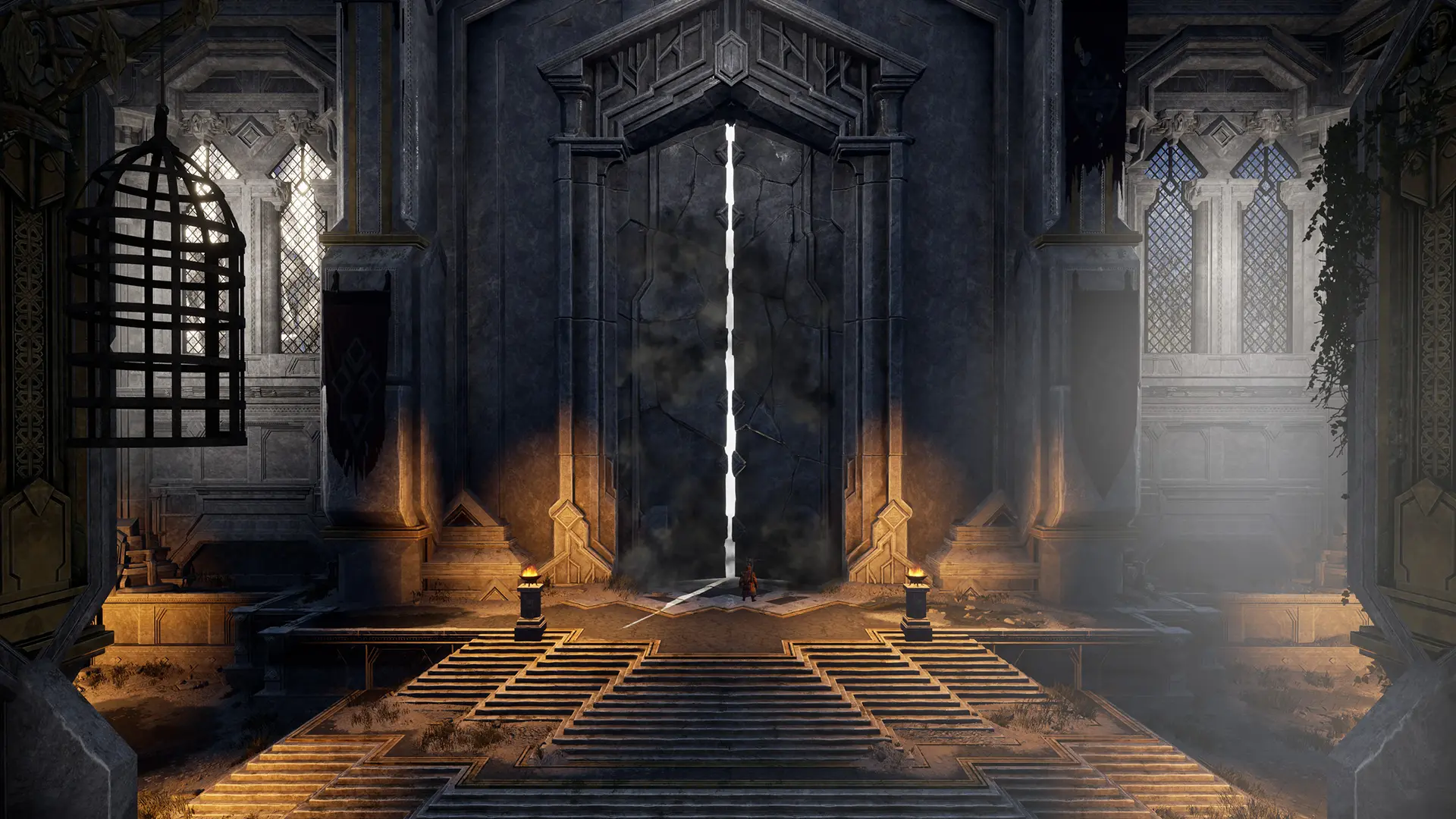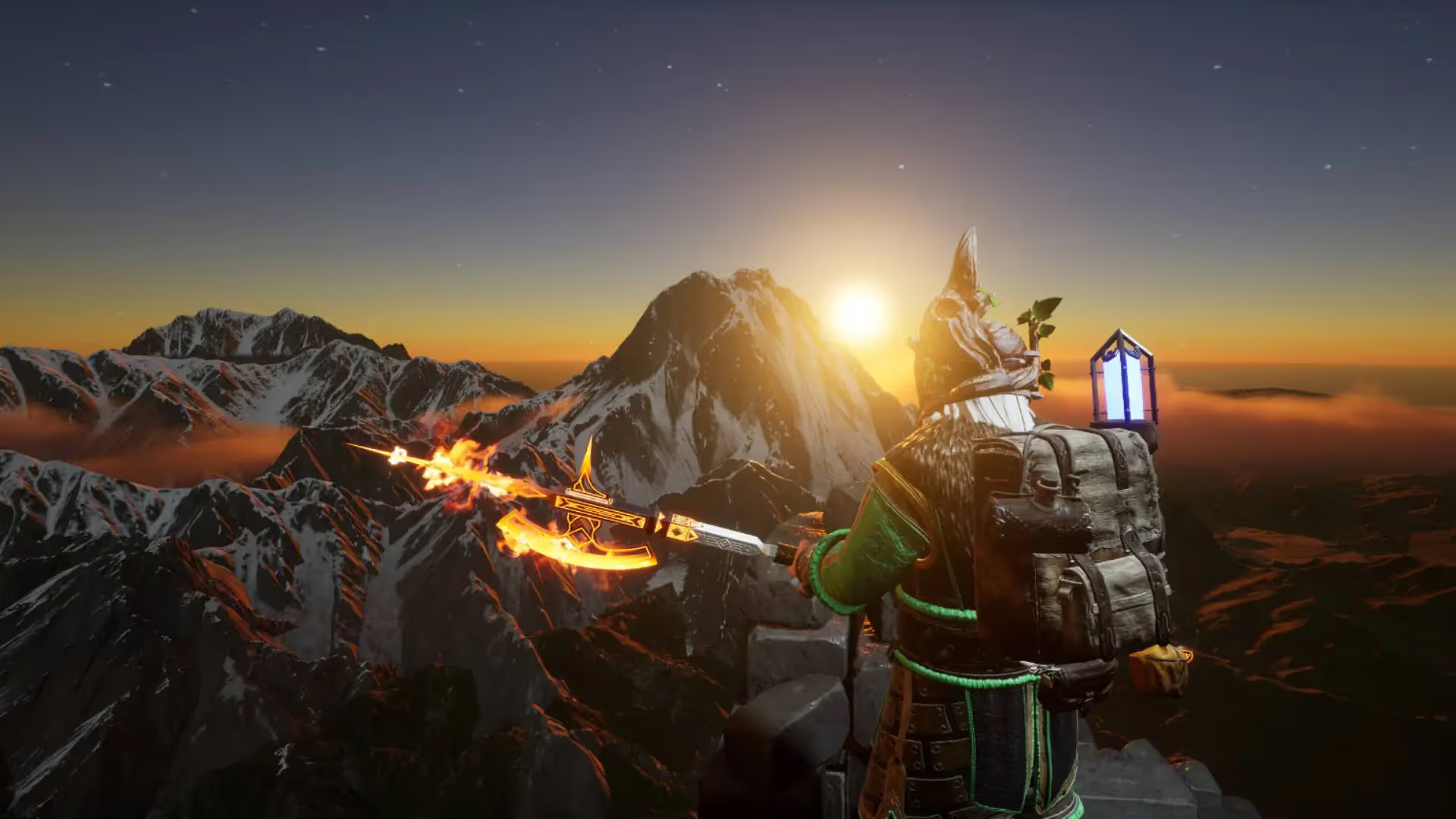Blog: Producing Return to Moria

01/26/2024
We sat down with Dave Arnold-Fernandez, Executive Producer of The Lord of the Rings: Return to Moria™ at Free Range Games to learn more about his role in the game’s development, from conception to release.

1. So you’ve been tasked with creating a survival crafting adventure set in Middle-earth. Where did you start?
We pretty much started with some dwarves and a dream. From there, we tried to imagine what a compelling survival crafting game would entail, from where resources are gathered underground to what kinds of mechanics we would need. We started with the obvious (crafting tools and weapons!) to the fitting (brewing ales) and even to some things that ended up on the cutting room floor.
A lot of the beginning work is writing and drawing. We start with design documentation and concept art, and move to creating a small experience (we called it the “Demo Cavern”) that we felt reflected the type of experience we wanted the game to be.
After that, it comes down to time and resources. We listed out all of the features we wanted to make, and worked with the team to schedule everything (mostly) in priority order. Making a game takes a village, so each feature was a combination of artists, engineers, designers, testers, and producers all making it work.
%201_24_2024%2010_39_54%20AM.avif)
2. What are the stages your job goes through when releasing the game? From conceptualization and planning to running departments and teams to bug triage and release?
At the start, I make a lot of spreadsheets and gantt charts. And let's not forget lists… and lists of lists. Keep in mind that every single thing that we build in the game needs to be written down and tracked somewhere! This includes things like objects( i.e.chests and tables), characters and monsters, individual animations, pieces of concept art, 3d levels, every single sound and voice line, every bit of text in the game (to get localized), and so on. Thankfully I had a fantastic group of producers and teammates to help keep it all organized!
Once we get into the thick of things, the job turns more to tracking progress of features and how much of those lists are getting done. I also keep an eye on our budget, and help decide what money gets spent where.
Then, once we get close to release, the job becomes about stabilizing the build and checking all of the boxes necessary to ship on whatever platform. Each one is a little different, so we need to make sure all the i’s are dotted and t’s are crossed.
3. What’s been your experience in gaming? What’re some games you’ve worked on in the past? Are there any lessons learned you applied to RTM?
Personally I’m a big gamer and have been playing various games since the 80s. I spend my days making them, and then go relax by playing them. Luckily, one of my favorite genres is Survival Crafting so that really worked in my favor!
I’ve worked on everything from AAA titles like Dead Space to mobile games in the past. Honestly, the biggest lesson I’ve learned over the years is that each project is pretty different, so adaptability is a must.

4. How do you decide what content needs to be in the game and what needs to be cut? What’s vital and what might need to be saved for another day?
This is always a group decision. I can come to the creative leadership and say “hey, I don’t think we have time for all of this, we’ll need to make some adjustments,” and then as a group we talk about what affects any cut or change would have on the overall experience.
Scoping the game is never easy. You have to ask yourself: “Will the user miss this if they never knew it was here in the first place?” Luckily nowadays we can go ahead and say “hey we can’t ship with this, but let’s set it aside for an update later” and that takes the sting away somewhat.
%201_24_2024%2010_42_21%20AM.avif)
5. What was your favorite part of working on RTM?
The team. We had a fantastic group of folks who were all very invested in this game. We all loved the lore and the setting, and we felt like we were making something we could all be proud of.

6. What’s your favorite feature in RTM?
Ok, so I said above I play Survival Crafting games, yeah? My favorite feature is the fact that we automatically take resources from any chests in the base when crafting. Game changer.
I will say though that the thing I’m most impressed with is the music. Our fantastic music director Max and his co-writer Teddy came up with a suite of songs that fit so well in the setting. I still find myself singing them to myself from time to time.
Want to learn more about the early stages of The Lord of the Rings: Return to Moria’s creation and game development? Check out this article from Art Director Bradley Fulton, or other Employee Spotlights in the Free Range Games Blog.

Unite with Your Fellow Dwarves
Adventure awaits in our growing discord community. Join to discover all things Return to Moria.






